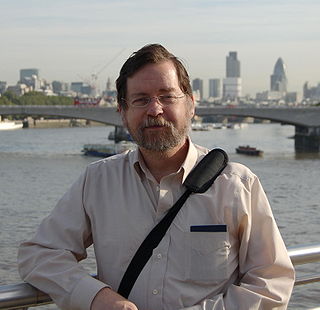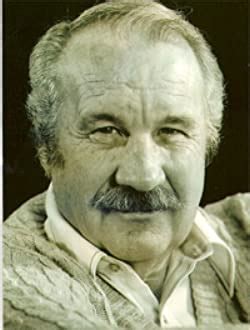A Quote by Dean Koontz
Doubt is poison. It leads to a loss of faith in yourself, and in all that's good and true.
Quote Topics
Related Quotes
As soon as we ask what faith is and what sort of mistreatment of faith causes doubt, we are led to the first major misconception about doubt-the idea that doubt is always wrong because it is the opposite of faith and the same thing as unbelief. What this error leads to is a view of faith that is unrealistic and a view of doubt that is unfair.
The blessed Paul argues that we are saved by faith, which he declares to be not from us but a gift from God. Thus there cannot possibly be true salvation where there is no true faith, and, since this faith is divinely enabled, it is without doubt bestowed by his free generosity. Where there is true belief through true faith, true salvation certainly accompanies it. Anyone who departs from true faith will not possess the grace of true salvation.
Take faith, for example. For many people in our world, the opposite of faith is doubt. The goal, then, within this understanding, is to eliminate doubt. But faith and doubt aren't opposites. Doubt is often a sign that your faith has a pulse, that it's alive and well and exploring and searching. Faith and doubt aren't opposites, they are, it turns out, excellent dance partners.
FAITH. No one word personifies the absolute worst and most wicked properties of religion better than that. Faith is mind-rot. It’s the poison that destroys critical thinking, undermines evidence, and leads people into lives dedicated to absurdity. It’s a parasite regarded as a virtue. I speak as a representative of the scientific faction of atheism: it’s one thing we simply cannot compromise on. Faith is wrong.
Out of the element of participation follows the certainty of faith; out of the element of separation follows the doubt in faith. And each is essential for the nature of faith. Sometimes certainty conquers doubt, but it cannot eliminate doubt. The conquered of today may become the conqueror of tomorrow. Sometimes doubt conquers faith, but it still contains faith. Otherwise it would be indifference.
I have no doubt that faith is only pure when it does not negate the faith of another. I have no doubt that evil can be fought and that indifference is no option. I have no doubt that fanaticism is dangerous. And of all the books in the world on life, I have no doubt that the life of one person weighs more than them all.
It's a weak faith that only serves God in times of blessing. The book of Job teaches us that true faith, genuine faith, great faith is revealed only when we serve and trust God in the hard times, the times of suffering, loss, and opposition. That's the kind of faith that makes the world sit up and take notice.
For every gain in deep certitude there is a corresponding growth of superficial "doubt." This doubt is by no means opposed to genuine faith, but it mercilessly examines and questions the spurious "faith" of everyday life, the human faith which is nothing but the passive acceptance of conventional opinion.



































